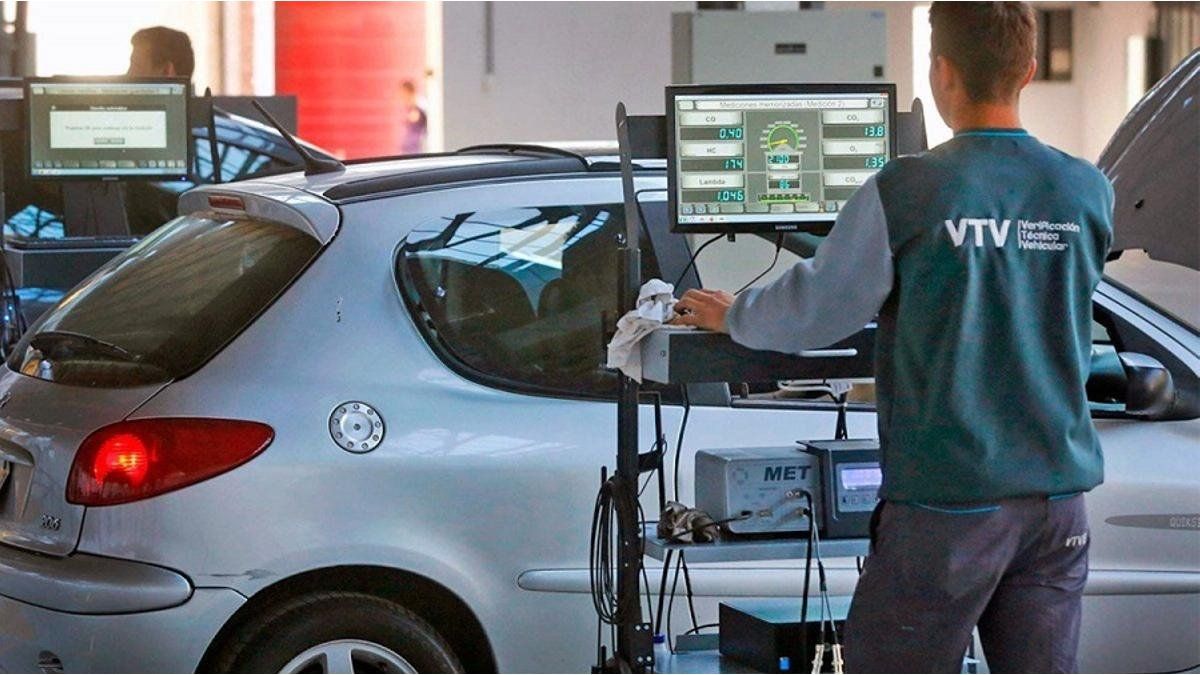The Vehicle Technical Verification(VTV), which requires all vehicles in the province of Buenos Aires to undergo a periodic safety reviewcould come to an end. A group of PRO senators Buenos Aires proposed a bill to eliminate this procedurearguing that it does not contribute significantly to the prevention of road accidents.
These senators are Aldana Ahumada, Christian Gribaudo and Marcelo Leguizamón Brownwho They questioned the effectiveness of VTV in reducing accidents on the routes. According to the document, the vast majority of accidents are not due to mechanical failures, but rather to factors such as “excess speed, recklessness and alcohol consumption”.
Ahumada stated that studies suggest that Technical failures represent less than 1% of accidents in Argentinaa figure that, in his opinion, does not justify the existence of VTV as an obligation.
The senators’ proposal
Instead of mandatory VTV, The project suggests that technical reviews be regulated exclusively by articles 34 and 35 of the National Traffic Lawleaving control in the hands of official dealerships, importers and authorized workshops.
With this measure, PRO legislators seek debureaucratize the systemallowing inspections to be under the supervision of private sector agents instead of provincial organizations.
Ahumada has harshly criticized VTV, calling it an “unnecessary bureaucracy,” especially after the recent increases in the rates for this procedure, which reached 296% in the last year.
The bill has already been presented in the Buenos Aires Senate and, after the next session in The Silverwill be debated in the Transportation Commissions, where its viability will be determined. The proposal generated a wide debate, in which both opponents of VTV and its defenders argued about the need for efficient control and the economic burden that this requirement represents.
vtv – shifts.jpg
VTV could come to an end in the PBA.
Archive
Faced with this initiative, the government of Axel Kicillof He defended the importance of VTV in the province’s road safety. During a recent conference, Carlos BlancoMinister of Government of Buenos Aires, stated that The vehicle technical inspection system was essential during the last 20 years to ensure that circulating vehicles are in optimal condition.
“Delete VTV It would be a reckless measure. The system is necessary to maintain safety on our routes, especially when seeing vehicles in poor condition circulating,” Blanco said.
The minister acknowledged, however, that reforms in the system could be analyzed of vehicle control, but without dispensing with the VTV. Furthermore, he stressed that the regulations in force in the province are similar to those of other Argentine provinces, which underlines the importance of a homogeneous control policy and consistent throughout the country.
The costs and usefulness of VTV
He 60% increase The cost of VTV, which was made official in October, was a key point in the debate. This increase, which is accumulated with previous increases until reaching 296% in just ten months, motivated criticism not only from legislatorsbut also from drivers who consider that the procedure became an economic burden without justification.
For the authors of the project, These increases further exacerbate the need for a review of the current regulations and reinforce the argument that the VTV represents a bureaucratic measure rather than an effective solution to road safety problems.
In contrast, andThe ruling party maintains that the spending is necessary to maintain controls and ensure that vehicles in circulation meet minimum safety standards.
For White, current costs reflect the need to adjust rates so that inspections are carried out with adequate resources, in addition to modernizing the review system to the extent possible so that it responds to the current traffic challenges in the province.
The proposal to eliminate VTV raises a question about the role of the State in the control of vehicles and the responsibility of drivers. The opposition argues that road safety education and the control of alcohol consumption and speed should be the priority focus, while the ruling party insists that mechanical inspections continue to be a fundamental measure for safety on the roads.
As the project advances in the legislature, the debate on the VTV is emerging as a relevant issue for road safety and the budget of Buenos Aires motorists. The final decision could define a significant change in Buenos Aires traffic policy and open the door to a new vehicle regulation model.
Source: Ambito
David William is a talented author who has made a name for himself in the world of writing. He is a professional author who writes on a wide range of topics, from general interest to opinion news. David is currently working as a writer at 24 hours worlds where he brings his unique perspective and in-depth research to his articles, making them both informative and engaging.




